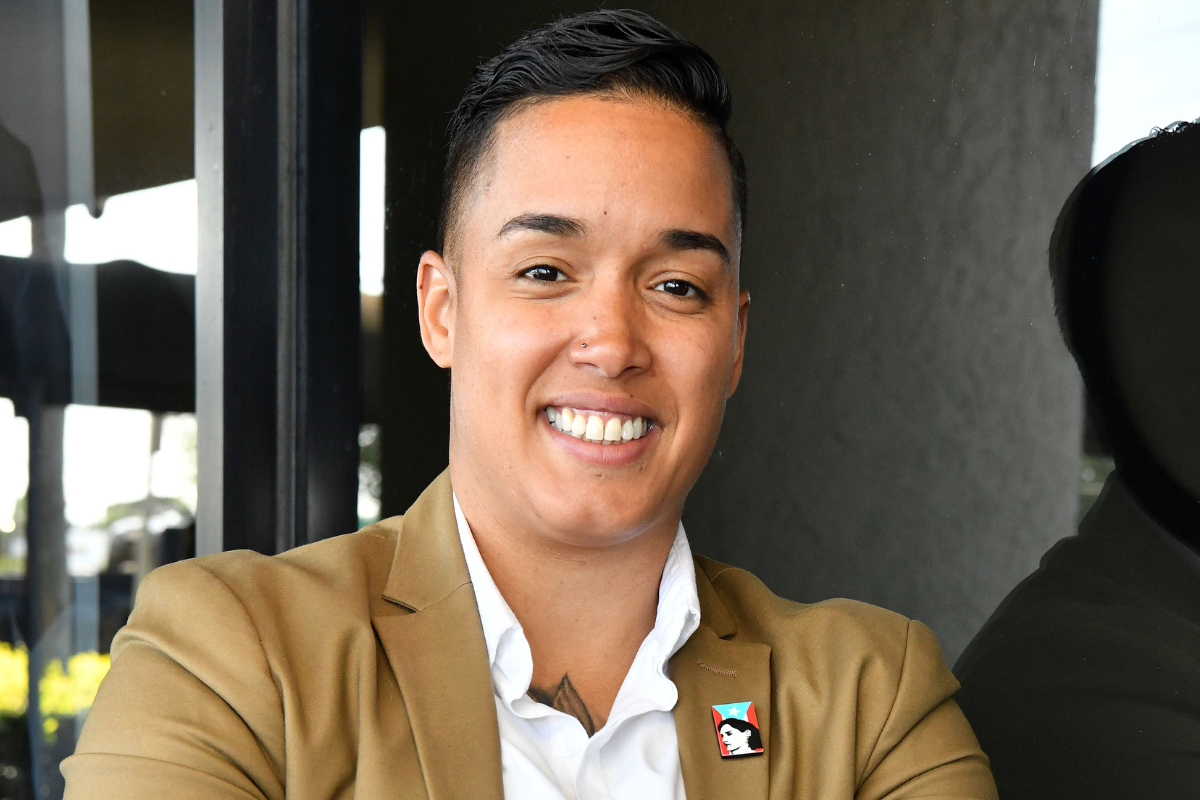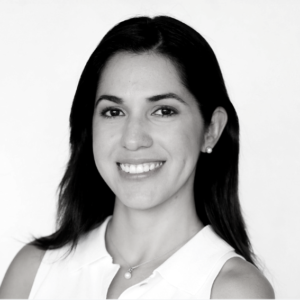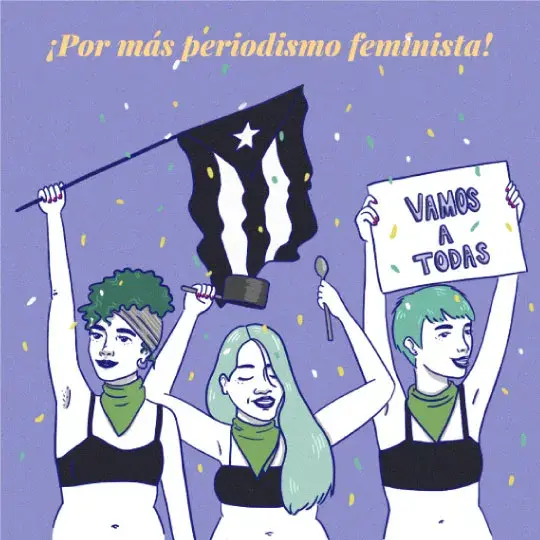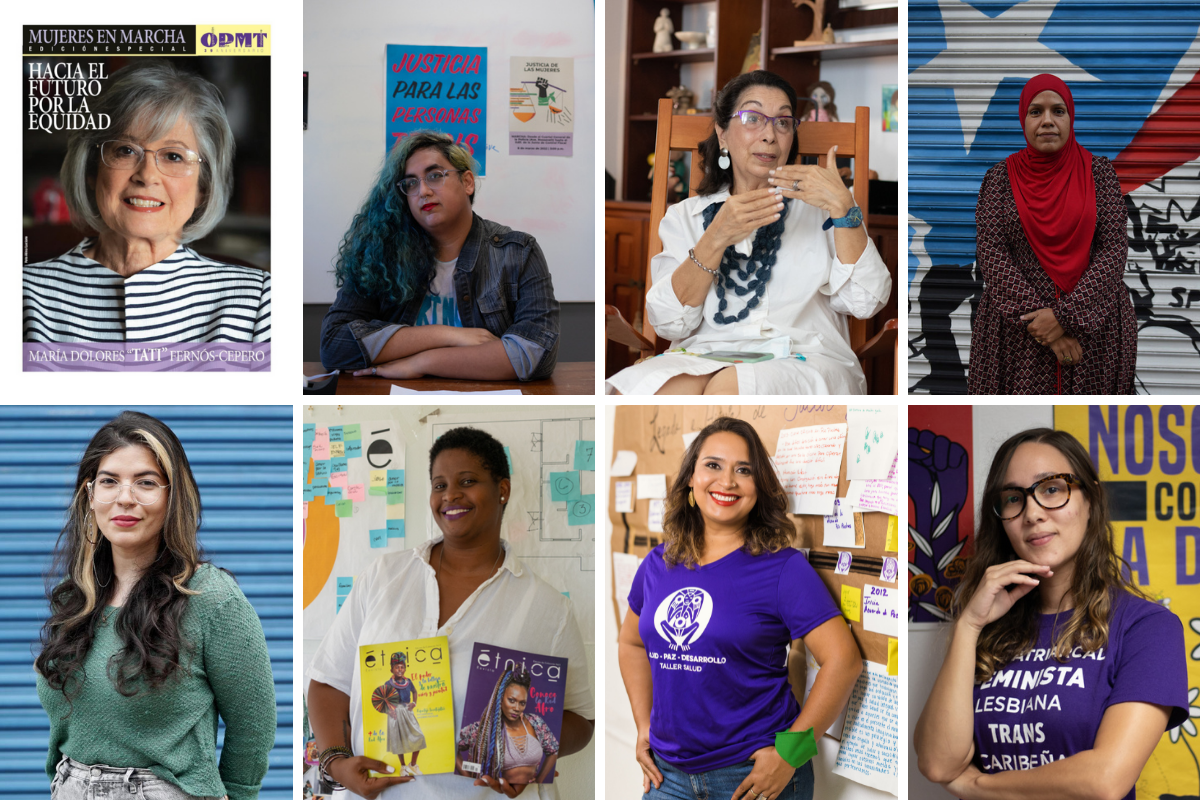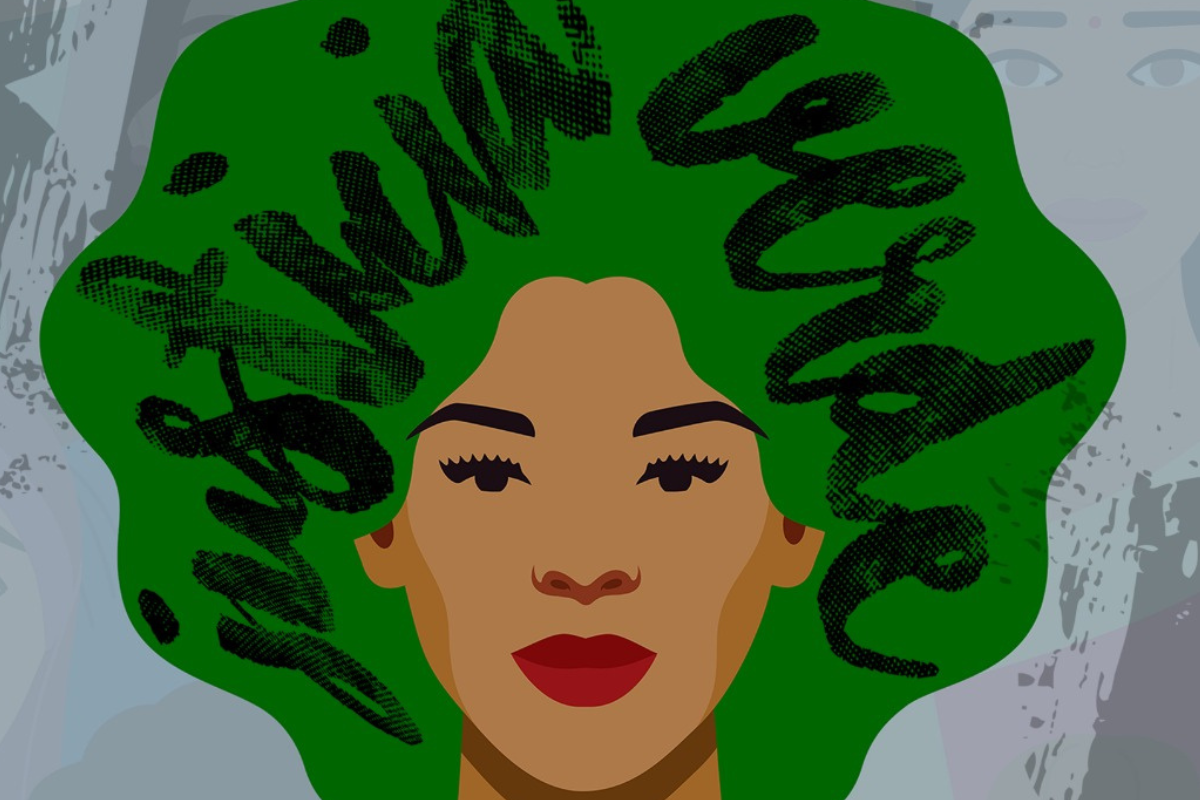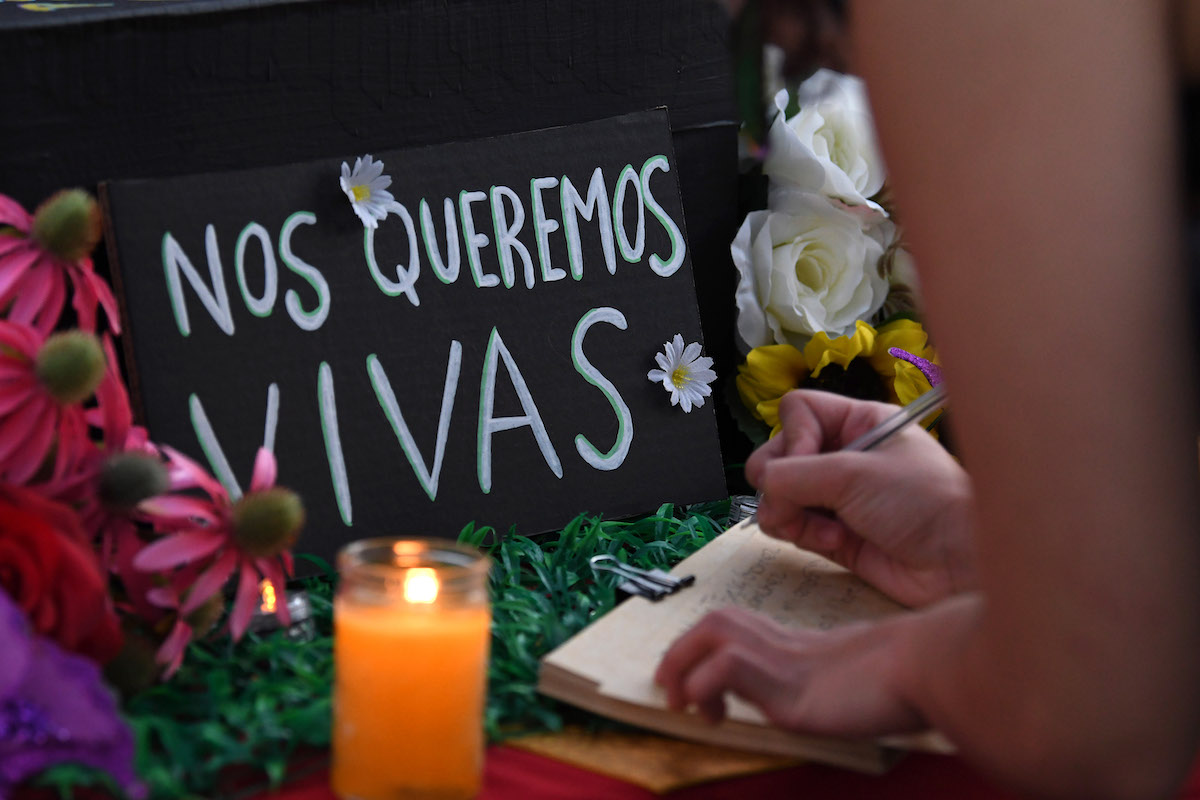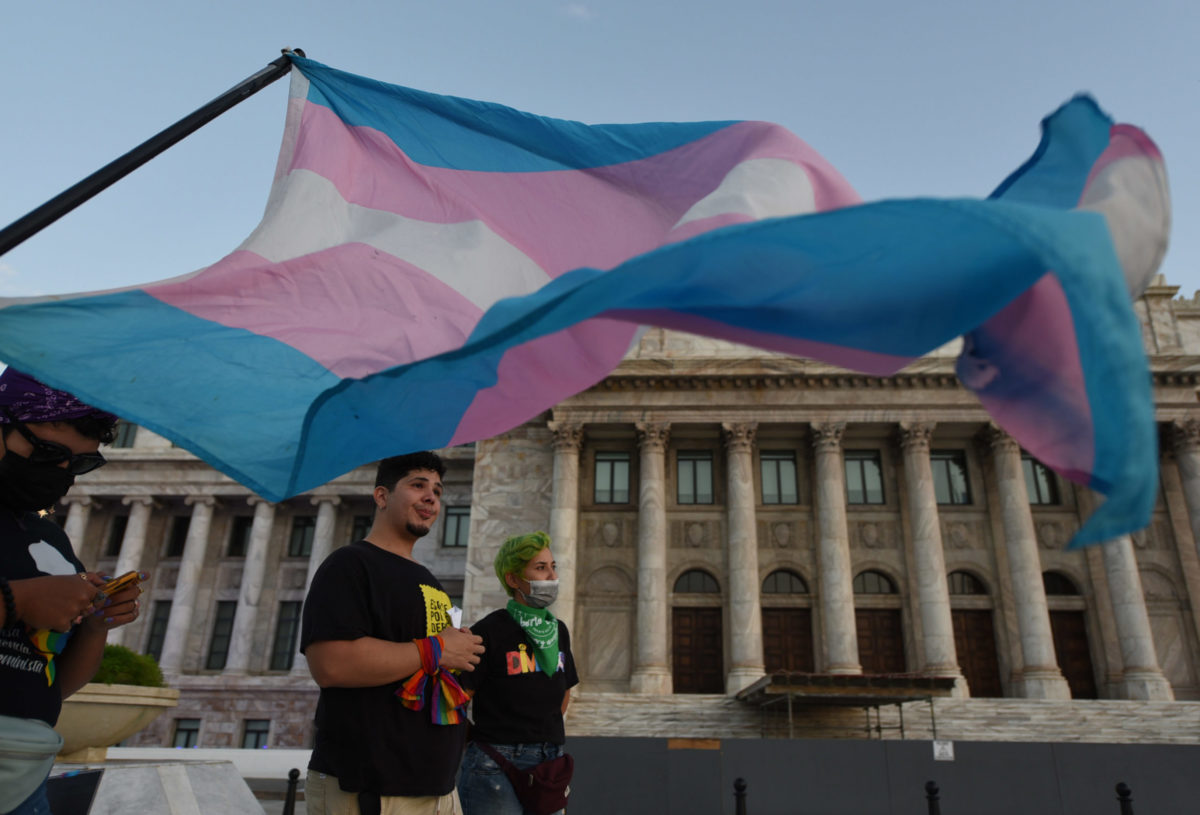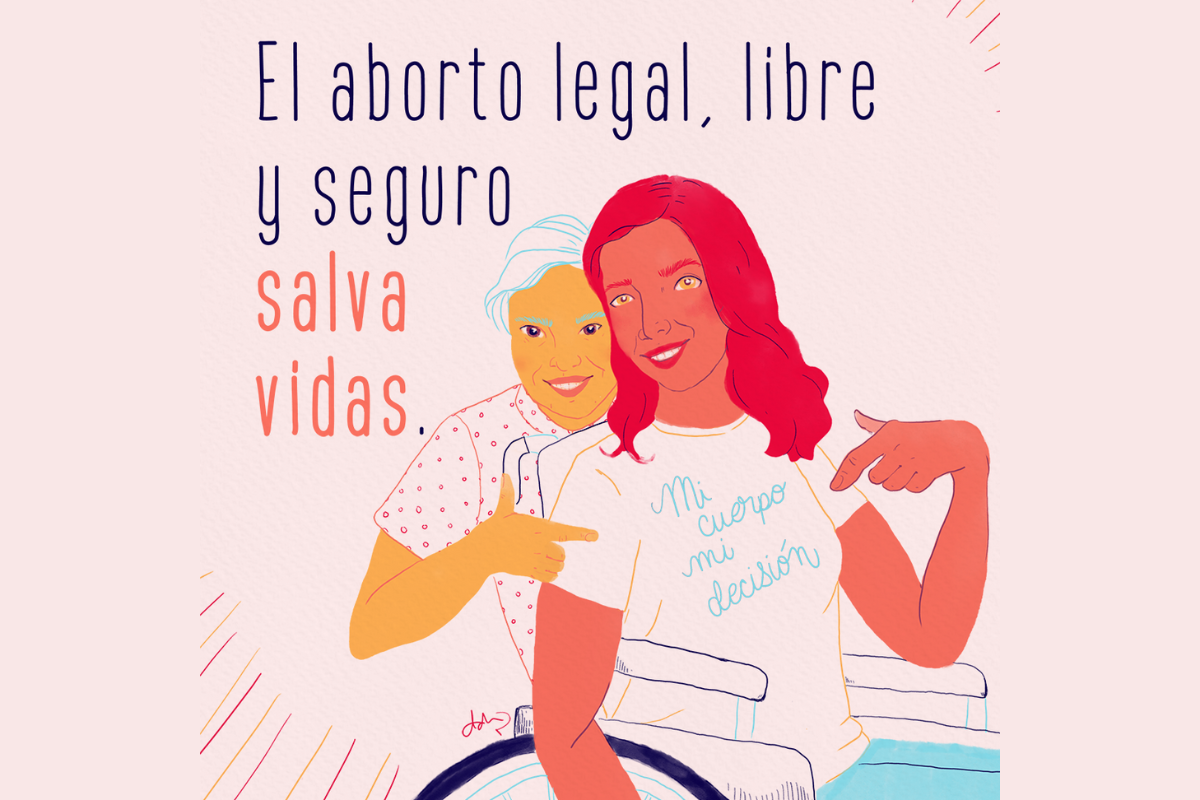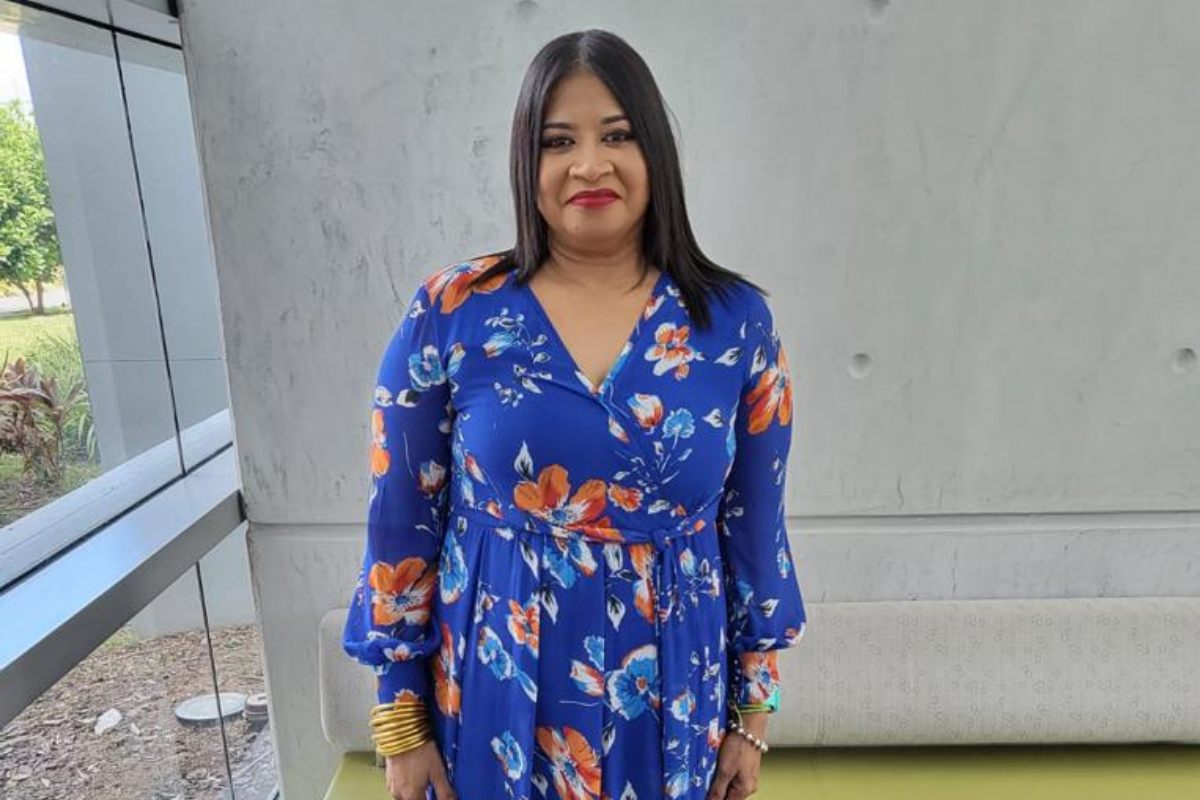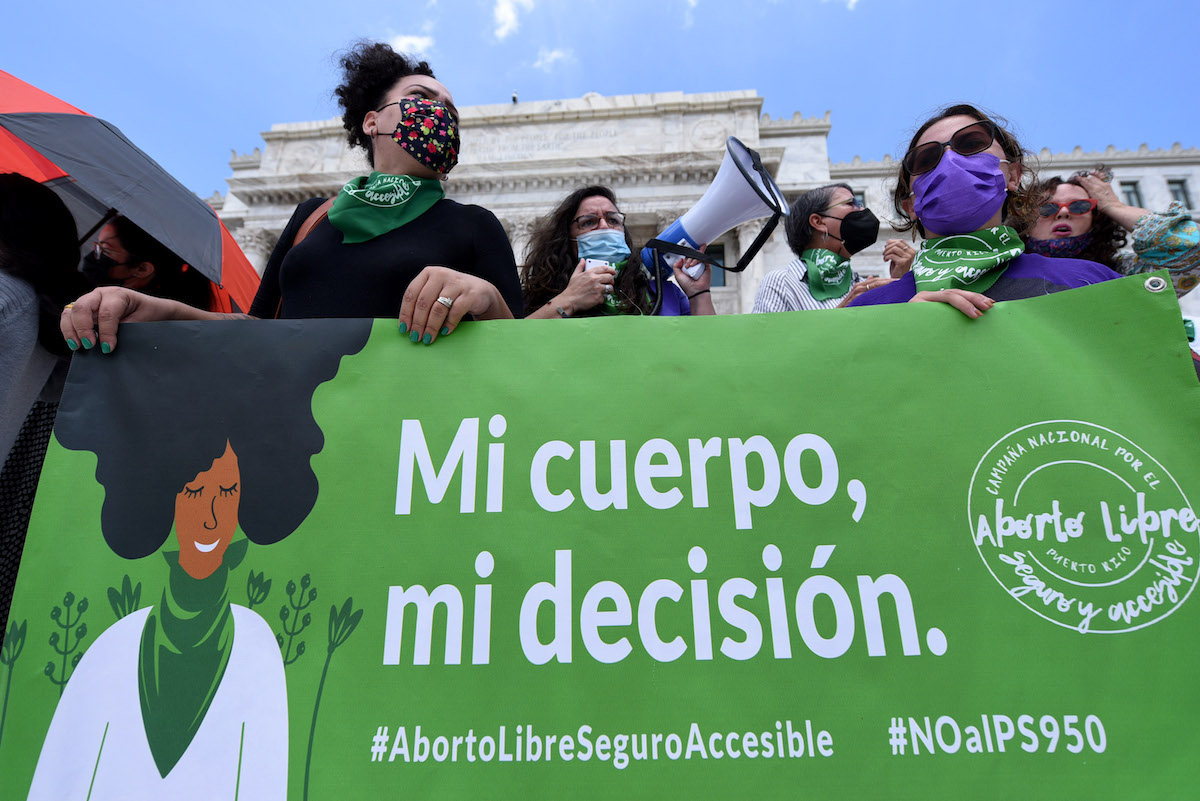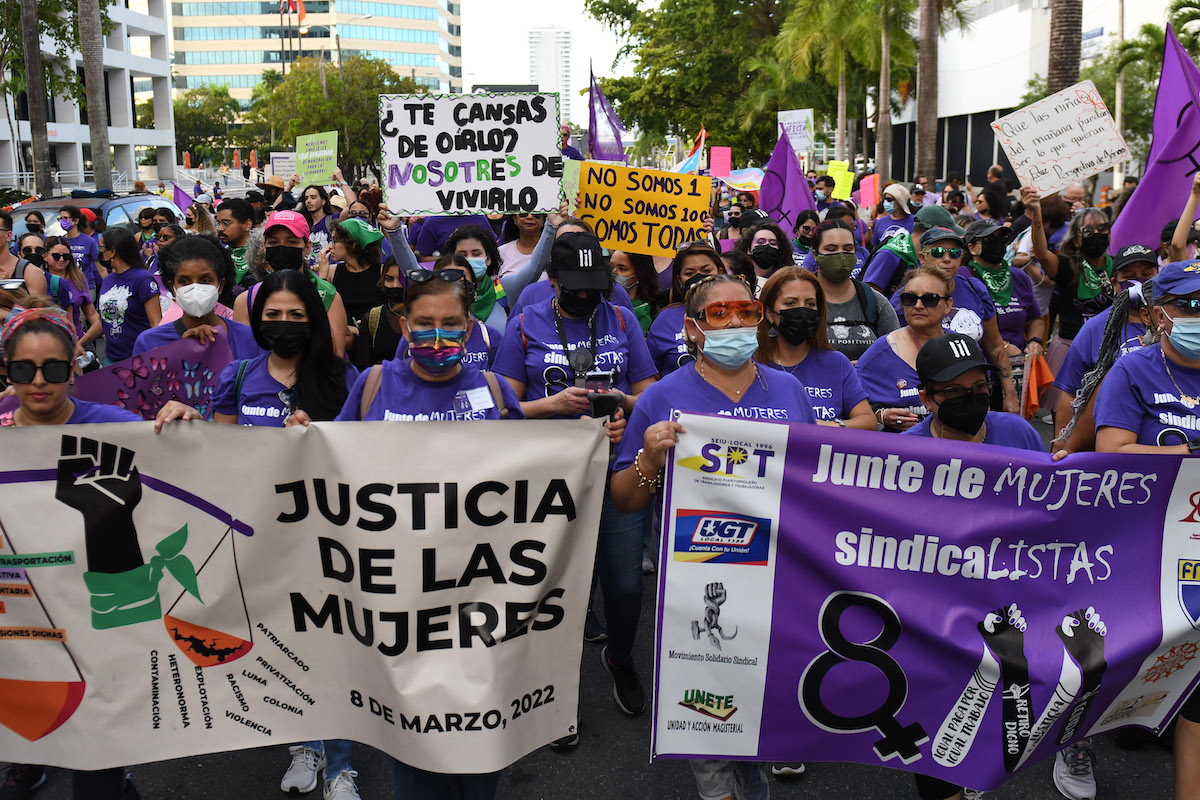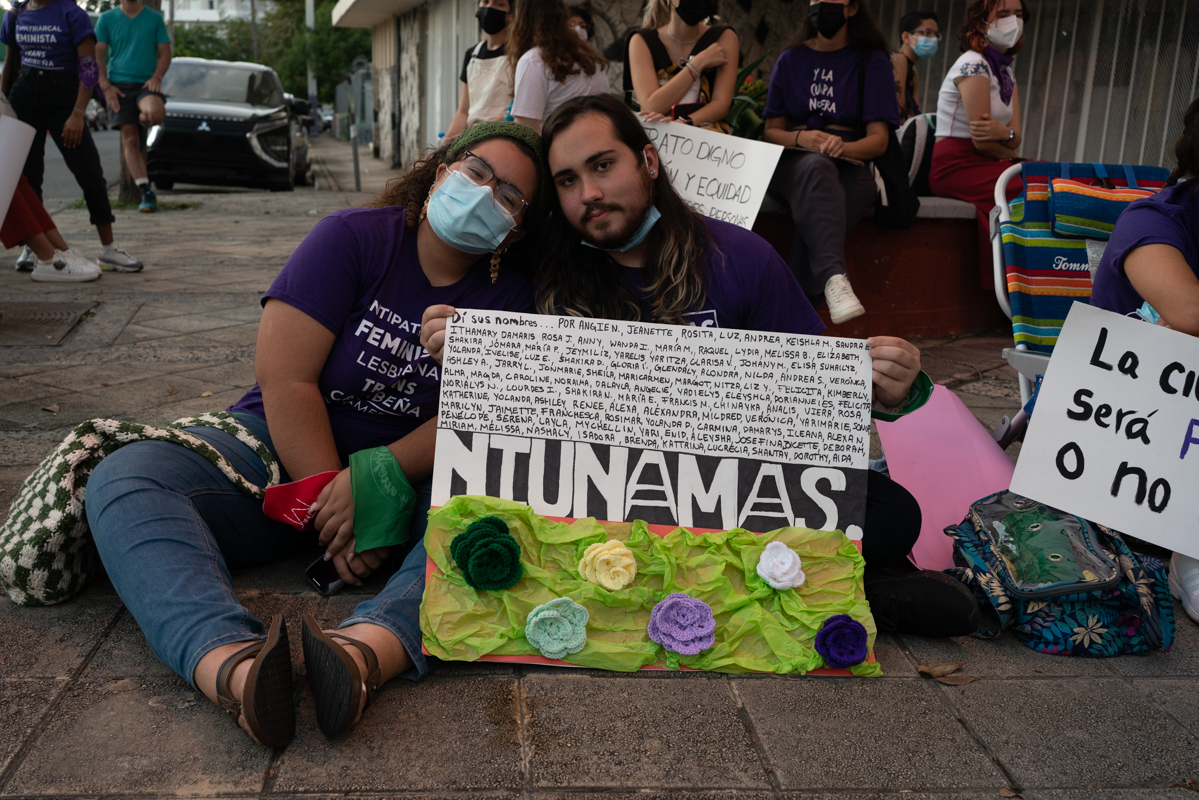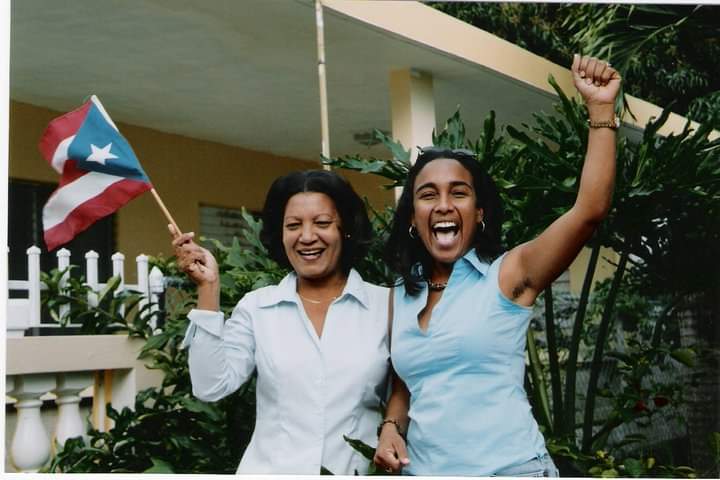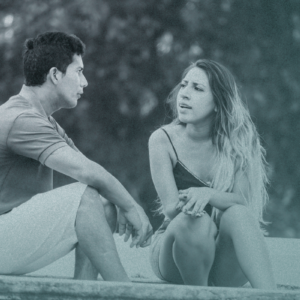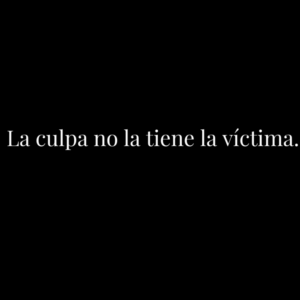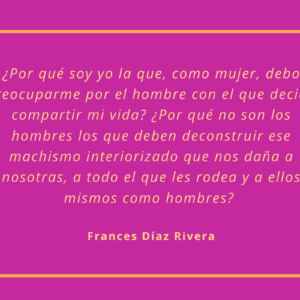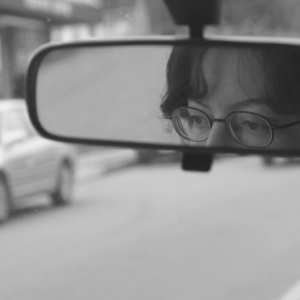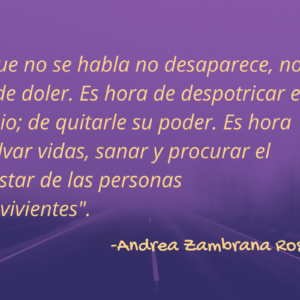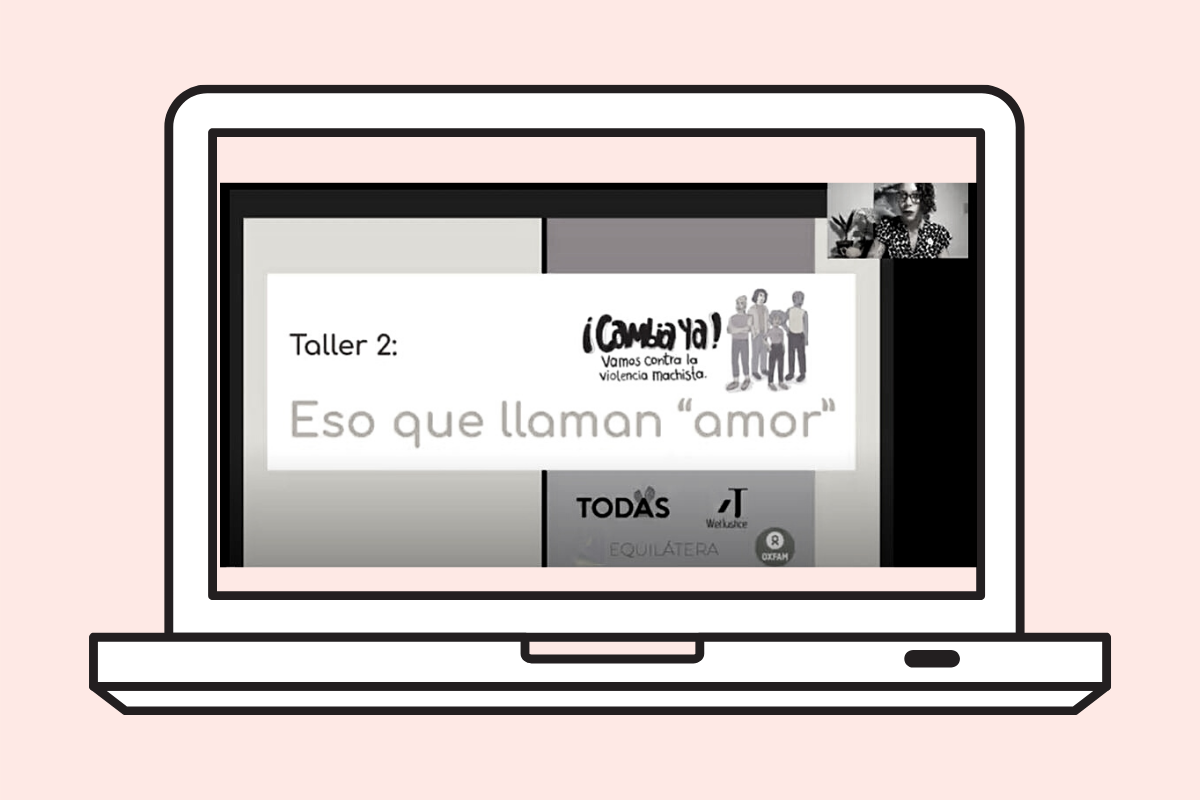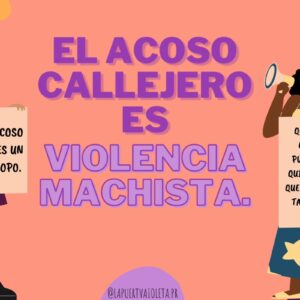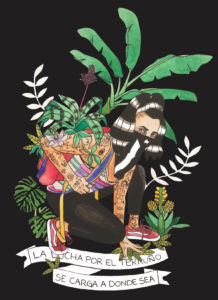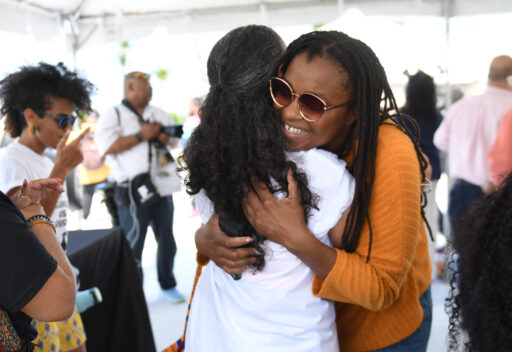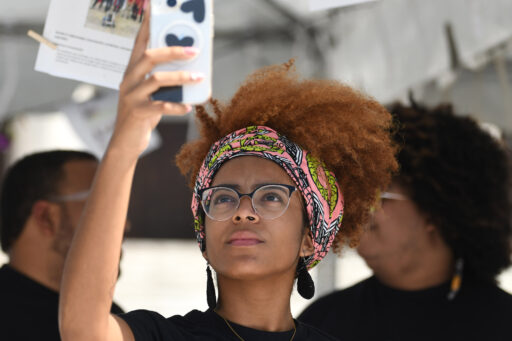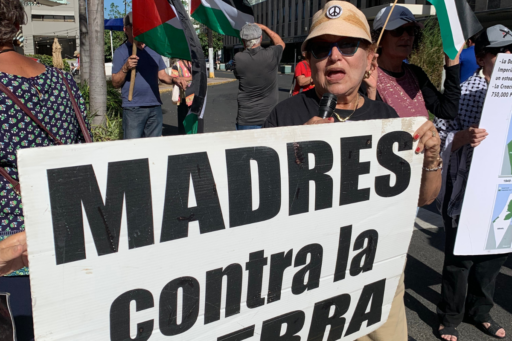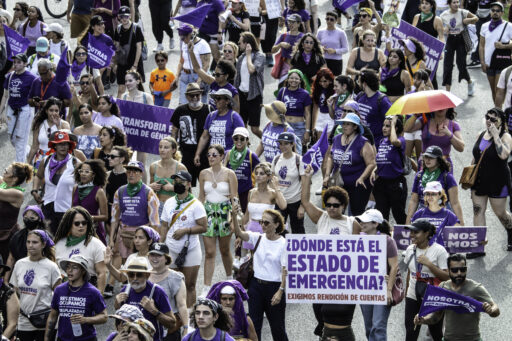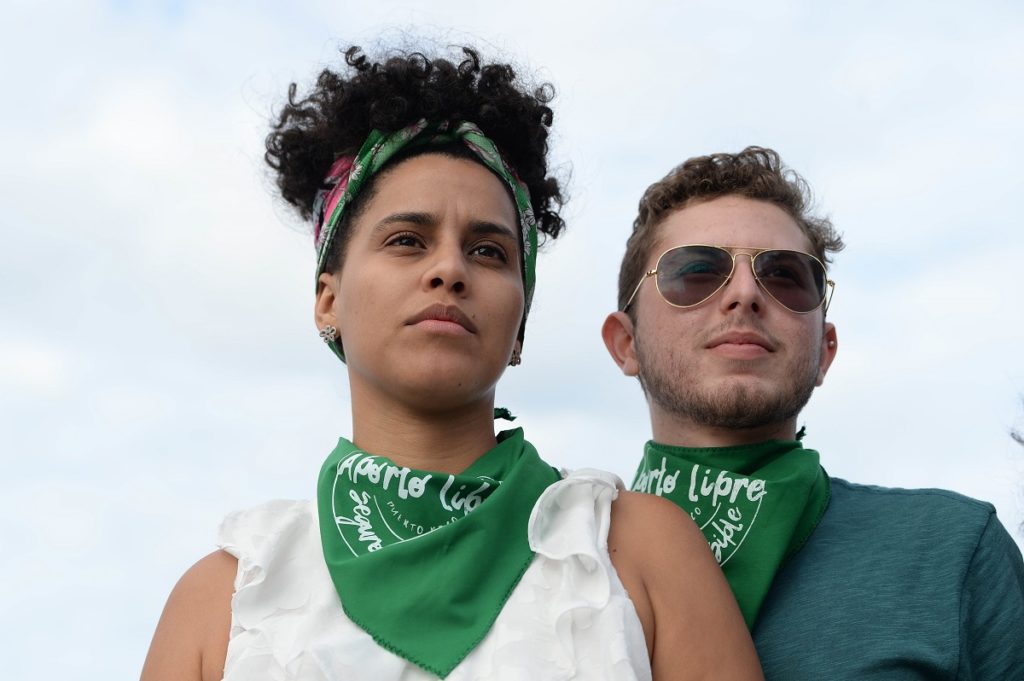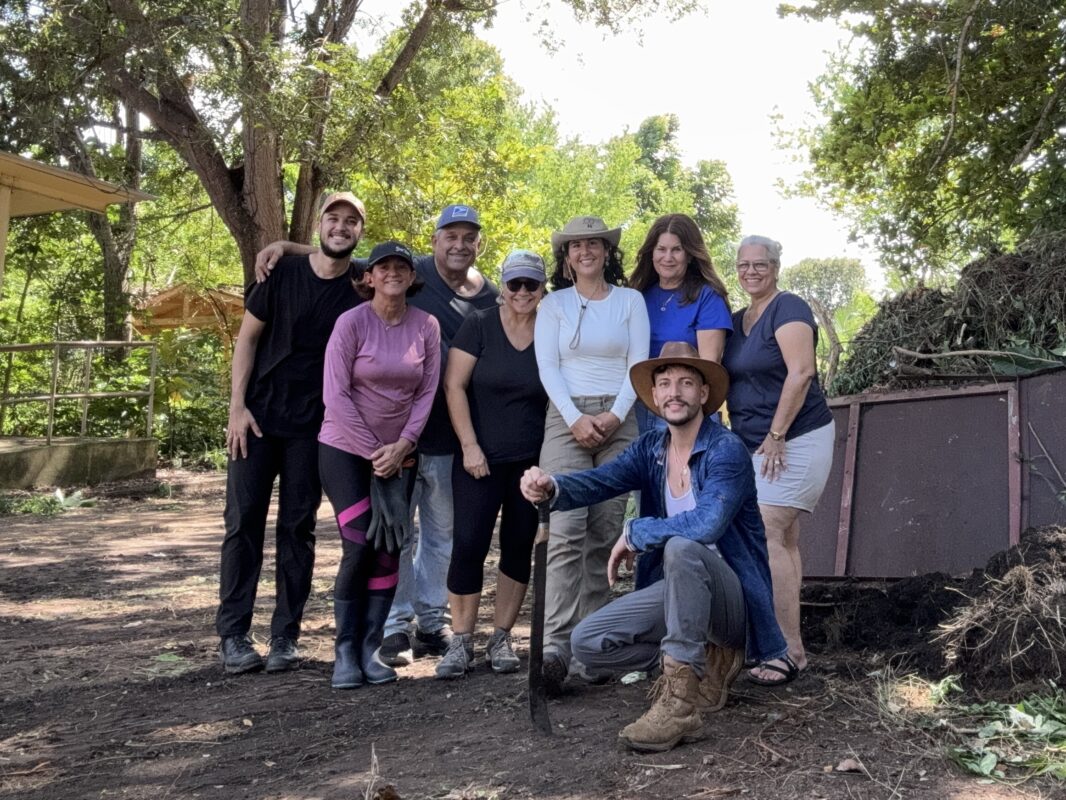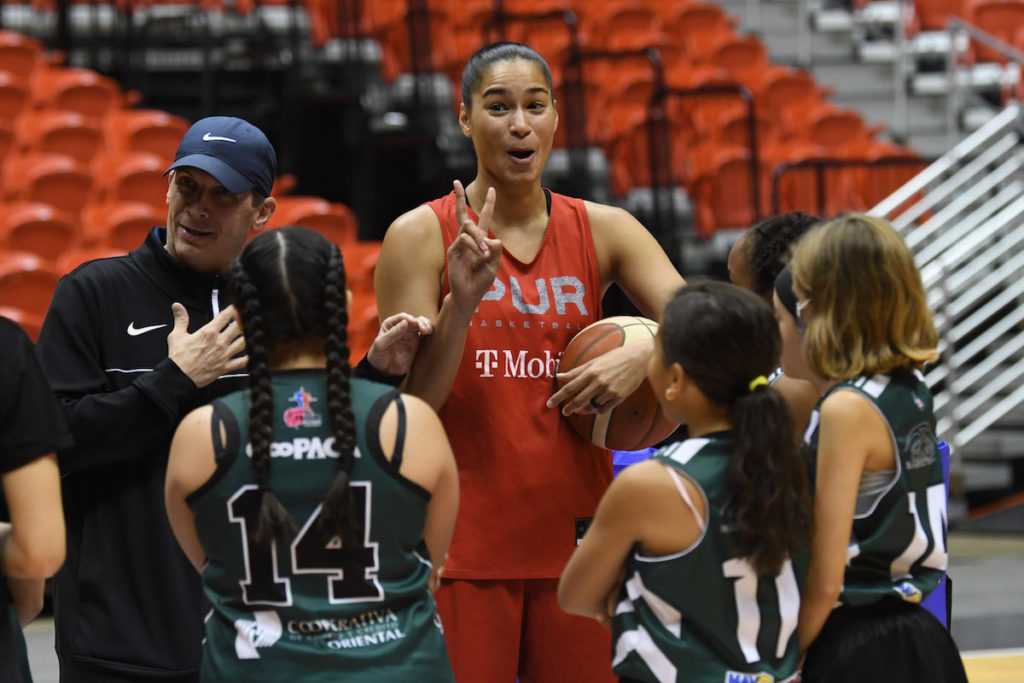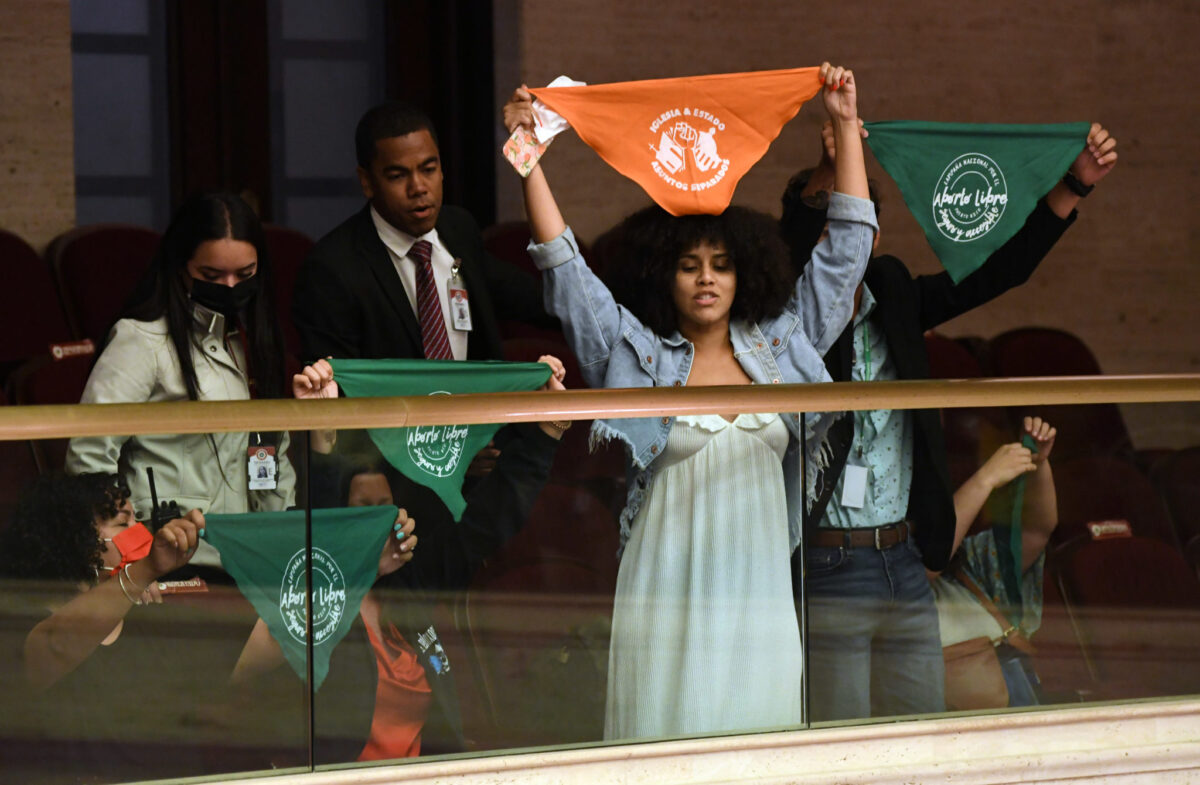Photo by Gerardo Mora | Centro de Periodismo Investigativo
She says she knocked on more than 10,000 doors in her district to talk to people about what they really needed. She was accompanied by nearly 200 volunteers, and in the end, Jessie Fuentes, the first queer Latina to become an alderwoman in the Chicago City Council, says her message resonated. Unlike politicians who are usually lawyers, businesspeople, and representatives of large corporations who don’t even know the communities they represent, her experience and background are like many of her neighbors.
Her main challenger had much more money for his political campaign than she did. But she prevailed. And her path to getting to that chair has been difficult and untraditional.
“Everything that was happening in my personal life with my family and then socially, was a lived experience that I didn’t have the tools to cope with ,” she says recalling what her teenage years were like. “And so, I had become violent. I was a perpetrator of violence. I got into multiple physical altercations in school that led to me being expelled from our public school system.”
That story, which includes her father in prison most of the time, and, simultaneously, her mother battling addiction to illegal drugs, is part of what she needs to share to understand who she is and why she does what she does.
Now, she considers herself privileged to have arrived at the Dr. Pedro Albizu Campos Puerto Rican High School at the age of 16, an initiative of the Puerto Rican Cultural Center on Paseo Boricua, in Humboldt Park.
“For the first time in my life, I was learning about the colonial reality of Puerto Rico, the migration of Puerto Ricans to the United States. It was able to give me a lens to understand my mother in a very different way that I couldn’t have before. But it was also that political consciousness that gave me healing from my own historical and generational trauma,” she said.
“When you’re able to have that political consciousness and truly understand the reality of colonialism among Latinos and in the diaspora, but more importantly, to be able to understand white supremacy and racism and all that Latinos and black individuals have to go through, you begin to understand why drug addiction exists, the mass incarceration of people of color, why so many of our families have to engage in illegal activity to survive in a country that has put up millions of barriers in front of them. To be able to understand that allowed me to engage in a process of love with myself that I wasn’t capable of for a very long time,” she said.
Despite all the anger and instability she carried with her, Fuentes was always a diligent student. Once at Albizu, it didn’t take her much more than a year to complete the credits to earn her high school diploma. She went to Northeastern Illinois University, where she enrolled in Justice Studies and Latin American Studies, and became involved in the Union for Puerto Rican Students and its magazine Que Ondee Sola.
“It felt so liberating to be able to be a part of something that was much greater than myself. But I also understood very early that I was not the only person that had those interpersonal experiences as a young Boricua in the diaspora, and that there were many families in Chicago that were experiencing that same type of pain that I was in. And so, I chose to become an educator,” she added.
Fuentes worked for 10 years as a school administrator, six of them at the Roberto Clemente Academy and the other four at her Pedro Albizu Campos School.
“For so long, as a young person, I asked myself, what did I do to deserve this? What did I do to deserve parents who lack the ability to love me and raise me? You know, was there something wrong with me that my parents were incapable of parenting?” she says about the questions that hammered in her brain when she still couldn’t understand the context of her parents’ lives.
Fuentes is not just a Latina from the Caribbean. She is also a masculine-looking lesbian in a deeply homophobic and transphobic society.
“I can’t tell you how difficult it was to be a young person and see women’s bathrooms and be told you’re in the wrong one,” she said, which is a common experience for women like her, but about which very little is talked about.
Participating in managing the Puerto Rican Cultural Center, studying at her school, made her a visible part of a community, of a movement that, she recognizes, accepts her as she is. The fight against transphobia, homophobia, colonialism, and racism are part of her political agenda.
But her incursion into electoral politics was primarily motivated by the effects of the COVID-19 pandemic on Chicago’s young Latino population.
“It became extremely difficult to exist within a system that was allowing young people, specifically young people of color, to die and disappear. And we were doing nothing about it. The government was doing nothing about it,” she said.
Jessie Fuentes’ incursion into politics was motivated by the effects of the COVID-19 pandemic on Latinx youth, but the fight against racism, homophobia and transphobia are part of her work agenda.
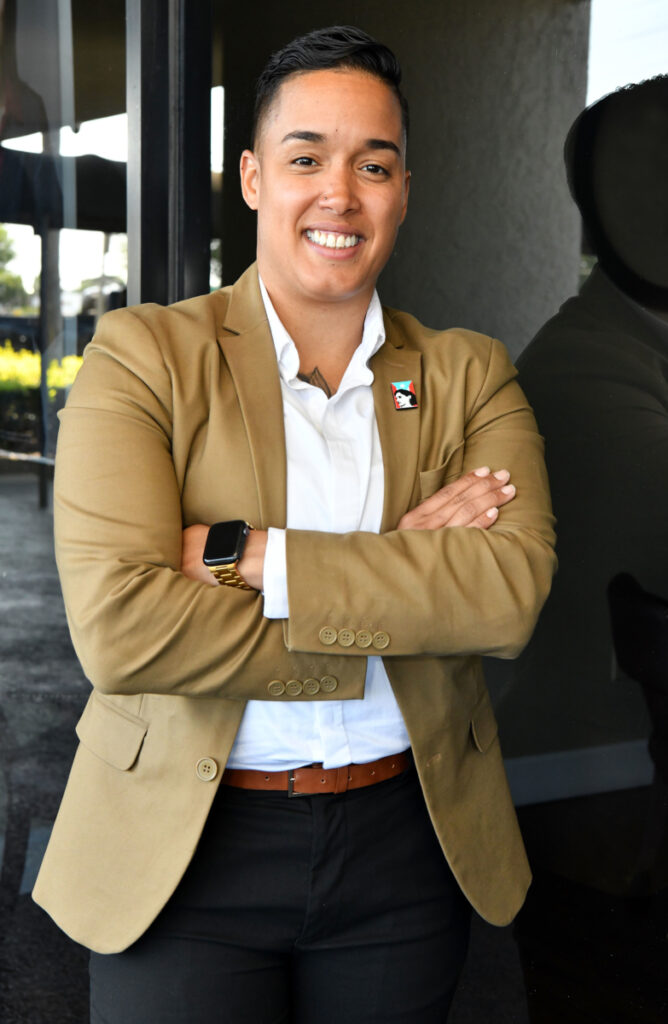
Photo by Gerardo Mora | Centro de Periodismo Investigativo
A Politician by Need
In March 2021, when public schools reopened after confinement measures due to the COVID-19 pandemic, thousands of students were absent for weeks. Fuentes followed the issue closely and observed that there were many children and young people who had not come back.
“And then our economy in Chicago collapsed.” Then came what she described as a new pandemic in the city, armed violence.
In Chicago, the number of shooting homicide victims increased 43% from the start of Illinois’ stay-at-home order on March 21, 2020, through early August 2020, compared to the three-year average for the same period, according to a study from the University of Pennsylvania.
“So not only were we watching young people disappear from our schools, but we were also watching young people die,” she adds to establish that it was a public safety crisis.
“It was the first time, I think, that I felt, in my current position, there was nothing more that I could do to make a difference. My hands were tied. I was existing within a system that didn’t allow me to do anything else than what I was already doing. When you reach that point, you must decide to do something different,” she said.
That meant leaving her career in a field she loved very much and trying to get into government. She ran as part of the United States Democratic Party, something she recognizes as a contradiction.
“It’s a contradiction, right? One that I must continuously remind myself is evident,” she acknowledged.
How do you make peace with that idea? She says that she is convinced that the development and mobilization strategy from the communities must go hand in hand with a resource mobilization strategy and public policy within the government apparatus.
“In the City Council, at this very hyper local level, it’s about how do I continue to create opportunities for my community to self-determine what it wants. How do I create systems and programs that allow individuals to become homeowners, become business owners, and not be dependent on a greater system? It’s about how we decolonize our community at a local level,” she noted.
That, she adds, is about having anti-colonial mental health systems, changing school curriculum to talk about colonialism, white supremacy, and racism.
One of her priorities, she says, is security. And her approach to dealing with violence moves away from the criminalization policies that have filled US prisons with black and Latino people, and which have proven ineffective in lowering criminality rates. She gravitates closer to prevention through the provision of services.
Fuentes knows her community is among the most violent of the 77 neighborhoods in Chicago with high rates of gun violence. It is, she says, the result of historic disinvestment in the area.
“We can’t talk about healing a community and addressing the root causes of violence if we are not willing to give our families the services that they deserve to be able to heal from that trauma and to be able to truly address the issue for what it is, is that we have a mental health crisis,” she said.
According to her, part of the solution lies in creating spaces for children and teens that are culturally sensitive, that allow young people to self-discover. And her proposal is based on her own experience as a student at the Pedro Albizu Campos alternative school model, on Paseo Boricua.
“I remember the moment that I felt that my life was changing because I was learning about who I was, where I came from, and a system that I existed in that was broken and not made for me. That means young people need to engage in that type of consciousness building,” she said.
Another priority for Fuentes is economic development to create stability for families, as well as decent housing. She believes in working hand in hand with unions to ensure fair payment for work, but also in supporting small and medium-sized businesses in the community.
In the 26th Ward, there are three major commercial corridors. “As a consequence of gentrification, we’ve seen these white corporate businesses move in and displace small business owners.” One of Fuentes’ goals is to create programs that help small businesses survive and preserve areas, like Paseo Boricua, as cultural districts that maintain the identity of those who live there.
“I truly believe in reappropriating the funds of the Chicago Police Department, because I know that the mass incarceration of black and brown people does not make our community safer. We must be able to invest in preventative measures and intervention and for me, that is not the Police,” she said.
Fuentes is committed to the model promoted by her colleague on the City Council, another Puerto Rican, Rossana Rodríguez, called “Treatment Not Trauma,” so that social workers and mediators are the ones who intervene in mental health crisis situations and not the Police.
“That is the very model of care that our communities need,” Fuentes said.


